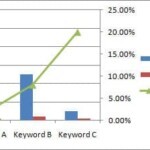Change can be a daunting prospect for many people, especially those in the world of search engine optimization. But sometimes, change is necessary to keep up with the latest developments in the online world. Google is constantly evolving its algorithm updates to ensure that users receive the most relevant and high-quality search results. This is why Google has introduced two new updates, Panda and Penguin, to tackle bad content and spam links.
Panda and Panda are for the purpose of putting harsh penalties and this is one of the best practices to stay away from spam links to keep the penalties away. If you require content update strategies then these techniques can help you overcome any panda and penguin that you come across in your path.
Let us have a look at some of the tips that will help you to survive the endless updates of Panda and Penguin:
The Panda Update
The Panda update was first introduced in 2011 and has since been updated several times. The purpose of this update is to put harsh penalties on websites with low-quality or thin content. Google’s aim is to prioritize high-quality content that provides value to users. The Panda update focuses on factors such as keyword stuffing, duplicate content, and poor grammar, among others.
To ensure your website stays ahead of the game, you need to ensure your content is of high quality. This means creating unique and relevant content that provides value to your audience. Avoid keyword stuffing and ensure your content is well-structured with proper grammar and spelling. It is also important to update your content regularly to keep it fresh and relevant.
The Penguin Update
The Penguin update was introduced in 2012 and has also been updated several times since. The purpose of this update is to tackle spam links and penalize websites that use manipulative link-building techniques. The Penguin update focuses on factors such as link schemes, paid links, and over-optimization of anchor text, among others.
To stay ahead of the game with the Penguin update, you need to ensure your link-building practices are ethical and follow Google’s guidelines. This means focusing on high-quality links from authoritative sources rather than spammy links. Avoid paid links and link schemes and ensure your anchor text is relevant and natural.
Content Update Strategies
If you are faced with a penalty from either the Panda or Penguin updates, there are several strategies you can use to overcome them. One of the most effective strategies is to update your content. This means creating new and relevant content that addresses the issues that caused the penalty in the first place. You can also edit your existing content to ensure it meets Google’s quality guidelines.
Another strategy is to remove any bad or spammy links that are pointing to your website. This can be done by using tools such as Google Search Console to identify the links and contacting the website owners to request their removal. Alternatively, you can use the disavow tool to tell Google to ignore these links.
Conclusion
Google algorithm updates can be a challenge to keep up with, but they are essential to ensure that users receive the best search results possible. The Panda and Penguin updates are two of the most significant updates that focus on content quality and link-building practices. To stay ahead of the game, you need to ensure your website has high-quality content and ethical link-building practices. If you do receive a penalty, there are strategies you can use to overcome it, such as updating your content or removing bad links. By following Google’s guidelines and keeping up with the latest updates, you can stay ahead of the game and ensure your website is successful in the long run.









Add comment